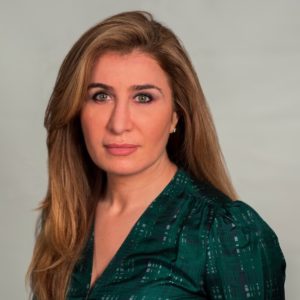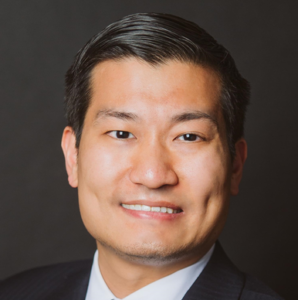On July 19, Jordan’s King Abdullah II will meet with President Biden at the White House, marking the first official Washington visit of an Arab head of state during the Biden administration. Abdullah’s visit comes at a moment of particular political uncertainty, economic decline, and escalating repression in the Kingdom. In April, the Palace detained the King’s half-brother Prince Hamzah, along with several other high-profile figures, for an alleged “coup” plot, but many view the allegations as an attempt to distract from growing discontent over Abdullah’s rule and from the rising popularity of Prince Hamzah. Against this backdrop of regime challenges, the United States—Jordan’s leading foreign backer—has continued to pursue a “business as usual” policy, expressing public support for the King without pressing for meaningful reforms.
To explore the domestic situation in Jordan and how the Biden administration and Congress should respond, POMED is pleased to host an expert discussion on Thursday, July 15, in advance of the King’s White House meeting.
Featuring:
- Bessma Momani
Assistant Vice-President, Research and International, and Full Professor of Political Science, University of Waterloo - Curtis Ryan
Professor of Political Science, Appalachian State University - Sean Yom
Associate Professor of Political Science, Temple University
Moderator:
- Arwa Shobaki
Managing Director, POMED
Speaker Bios:
 Bessma Momani is Full Professor of Political Science and Assistant Vice-President of Research and International in the Office of Research at the University of Waterloo. She is also a senior fellow at the Centre for International Governance and Innovation (CIGI) and a nonresident fellow at the Arab Gulf States Institute of Washington. Dr. Momani has previously been a nonresident senior fellow at the Brookings Institution and the Stimson Center, and was a visiting scholar at Georgetown University’s Mortara Center. She was a 2015 Fellow of the Pierre Elliott Trudeau Foundation and a 2011-12 Fulbright Scholar. She is a regular contributor to national and international media on Arab politics and on global economic governance issues. She has written editorials for the New York Times, Economist, Globe and Mail, Toronto Star, Ottawa Citizen, among others. Dr. Momani received her BA from the University of Toronto, MA from the University of Guelph, and PhD from the University of Western Ontario.
Bessma Momani is Full Professor of Political Science and Assistant Vice-President of Research and International in the Office of Research at the University of Waterloo. She is also a senior fellow at the Centre for International Governance and Innovation (CIGI) and a nonresident fellow at the Arab Gulf States Institute of Washington. Dr. Momani has previously been a nonresident senior fellow at the Brookings Institution and the Stimson Center, and was a visiting scholar at Georgetown University’s Mortara Center. She was a 2015 Fellow of the Pierre Elliott Trudeau Foundation and a 2011-12 Fulbright Scholar. She is a regular contributor to national and international media on Arab politics and on global economic governance issues. She has written editorials for the New York Times, Economist, Globe and Mail, Toronto Star, Ottawa Citizen, among others. Dr. Momani received her BA from the University of Toronto, MA from the University of Guelph, and PhD from the University of Western Ontario.
 Curtis Ryan is Professor of Political Science at Appalachian State University. Dr. Ryan served as a 1992-93 Fulbright Scholar at the Center for Strategic Studies, University of Jordan and was twice named a Peace Scholar by the United States Institute of Peace. In addition to his contributions to Middle East Report, his articles have been published in the Middle East Journal, the British Journal of Middle East Studies, Studies in Ethnicity and Nationalism, World Politics Review, Arab Studies Quarterly, Israel Affairs, Orient, Southeastern Political Review, Journal of Third World Studies, Middle East Policy, and the Journal of Middle East Law and Governance. He is the author of three books: Jordan in Transition: From Hussein to Abdullah (2002), Inter-Arab Alliances: Regime Security and Jordanian Foreign Policy (2009) and Jordan and the Arab Uprisings – Regime Survival and Politics Beyond the State (2018). He received his BA in History and Political Science from Drew University and his MA and PhD in Political Science from the University of North Carolina at Chapel Hill.
Curtis Ryan is Professor of Political Science at Appalachian State University. Dr. Ryan served as a 1992-93 Fulbright Scholar at the Center for Strategic Studies, University of Jordan and was twice named a Peace Scholar by the United States Institute of Peace. In addition to his contributions to Middle East Report, his articles have been published in the Middle East Journal, the British Journal of Middle East Studies, Studies in Ethnicity and Nationalism, World Politics Review, Arab Studies Quarterly, Israel Affairs, Orient, Southeastern Political Review, Journal of Third World Studies, Middle East Policy, and the Journal of Middle East Law and Governance. He is the author of three books: Jordan in Transition: From Hussein to Abdullah (2002), Inter-Arab Alliances: Regime Security and Jordanian Foreign Policy (2009) and Jordan and the Arab Uprisings – Regime Survival and Politics Beyond the State (2018). He received his BA in History and Political Science from Drew University and his MA and PhD in Political Science from the University of North Carolina at Chapel Hill.
 Sean Yom is Associate Professor of Political Science at Temple University and Senior Fellow in the Middle East Program at the Foreign Policy Research Institute. He is a specialist on regimes and governance in the Middle East, especially in Arab monarchies like Jordan, Kuwait, and Morocco. Dr. Yom’s research engages topics of authoritarian politics, democratic reforms, institutional stability, and economic development in these countries, as well as their implications for U.S. foreign policy. His publications include the books From Resilience to Revolution: How Foreign Interventions Destabilize the Middle East (2016) and Government and Politics of the Middle East and North Africa, 9th edition (2020); articles in print journals such as Comparative Political Studies, European Journal of International Relations, Studies in Comparative International Development, and Journal of Democracy; and contributions in online venues like Foreign Affairs, Middle East Eye, and the Washington Post. Dr. Yom also advises country-level work with international NGOs, law firms, and sovereign clients. Dr. Yom received his BA from Brown University and his PhD from Harvard University.
Sean Yom is Associate Professor of Political Science at Temple University and Senior Fellow in the Middle East Program at the Foreign Policy Research Institute. He is a specialist on regimes and governance in the Middle East, especially in Arab monarchies like Jordan, Kuwait, and Morocco. Dr. Yom’s research engages topics of authoritarian politics, democratic reforms, institutional stability, and economic development in these countries, as well as their implications for U.S. foreign policy. His publications include the books From Resilience to Revolution: How Foreign Interventions Destabilize the Middle East (2016) and Government and Politics of the Middle East and North Africa, 9th edition (2020); articles in print journals such as Comparative Political Studies, European Journal of International Relations, Studies in Comparative International Development, and Journal of Democracy; and contributions in online venues like Foreign Affairs, Middle East Eye, and the Washington Post. Dr. Yom also advises country-level work with international NGOs, law firms, and sovereign clients. Dr. Yom received his BA from Brown University and his PhD from Harvard University.
 Arwa Shobaki is POMED’s Managing Director. She has spent her career dedicated to the nonprofit sector, helping to manage, design, and lead Middle East and North Africa rights-based initiatives. She has worked with the International Organization for Migration, American Bar Association Rule of Law Initiative, Club of Madrid, and the International Commission of Jurists. Her work has focused primarily on supporting freedom of association and expression and on promoting democratic policies and principles in Bahrain, Egypt, Jordan, Morocco, Tunisia, and Yemen. Prior to joining POMED in 2013, Shobaki worked with the Open Society Justice Initiative and as a summer associate with the Center for National Security Studies, where she focused on freedom of information and expression research. She received her MA in Middle Eastern Studies from the University of Texas at Austin, LLB from the University of Edinburgh, and LLM in Law and Government from the Washington College of Law. She began her career as an anthropology major and Peace Corps Volunteer in Mauritania.
Arwa Shobaki is POMED’s Managing Director. She has spent her career dedicated to the nonprofit sector, helping to manage, design, and lead Middle East and North Africa rights-based initiatives. She has worked with the International Organization for Migration, American Bar Association Rule of Law Initiative, Club of Madrid, and the International Commission of Jurists. Her work has focused primarily on supporting freedom of association and expression and on promoting democratic policies and principles in Bahrain, Egypt, Jordan, Morocco, Tunisia, and Yemen. Prior to joining POMED in 2013, Shobaki worked with the Open Society Justice Initiative and as a summer associate with the Center for National Security Studies, where she focused on freedom of information and expression research. She received her MA in Middle Eastern Studies from the University of Texas at Austin, LLB from the University of Edinburgh, and LLM in Law and Government from the Washington College of Law. She began her career as an anthropology major and Peace Corps Volunteer in Mauritania.
